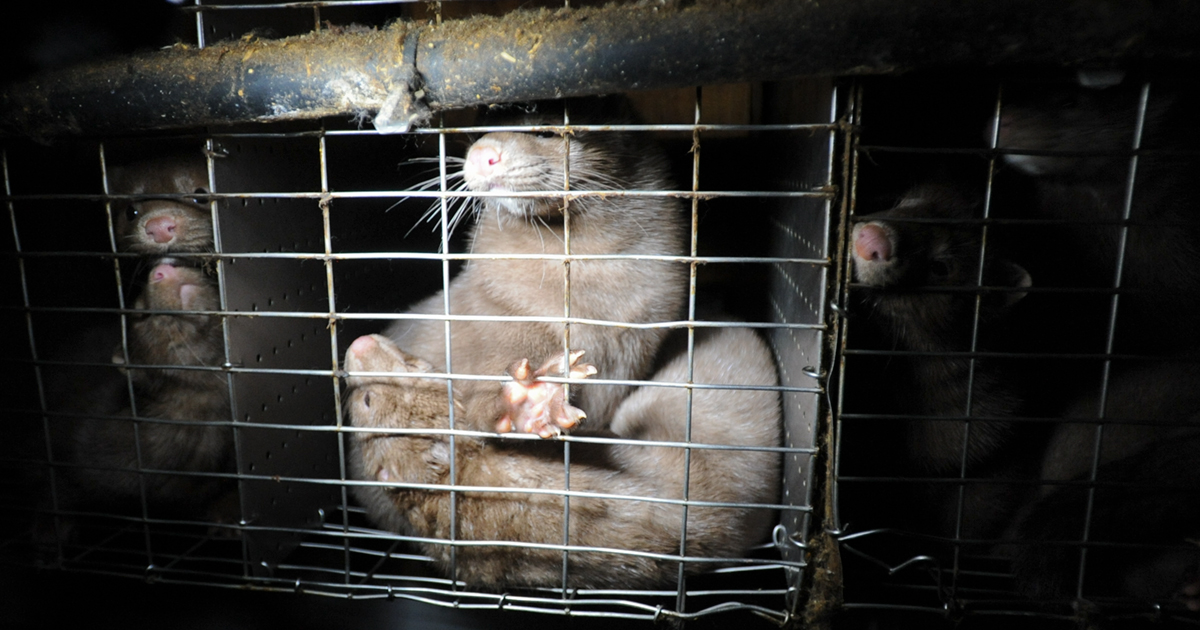
Farmed mink are being killed prematurely around the world in response to massive outbreaks of the coronavirus that causes COVID-19, but Canada has so far only noted “biosecurity” measures being implemented on dozens of farms across the nation.
Countries including Denmark, France, Italy, Greece, Sweden, the Netherlands, Spain, Poland, Lithuania and the United States of America have all identified signs of the virus on mink farms, leading to widespread preventative culls. In Denmark, a mutated form of the virus was identified that could have negative impacts on vaccine efficacy, scientists warned.
Farmed mink, who are susceptible to coronaviruses, are also kept in conditions that promote the quick spread or mutation of viruses.
As recently as last week, the state of Oregon said they would not be proactively testing mink farms as they had implemented biosecurity measures (the same phrasing used by Canadian provincial authorities, who oversee mink farms); within days of that statement, the virus was reported on an Oregon farm both in mink and people.
Provincial agricultural and health authorities may be comfortable taking a wait-and-see approach to coronavirus on Canadian mink farms, but we believe, for the safety of workers and the animals held in captivity in wire-bottomed cages in close proximity to each other, more should be done.
Specifically, our recommendations based on events in Europe and the United States, are for the federal government of Canada to:
- Immediately instruct provincial health authorities to undertake proactive testing on mink farms throughout Canada;
- Develop a public plan based on medical advice for quarantining and sanitizing farms that test positive; and,
- Create a program to assist fur farm owners transitioning out of the fur industry to sustainable, green businesses that benefits the economy regardless of wildly fluctuating pelt prices for the fashion industry.
To show your support for these initiatives to benefit communities and protect all Canadians, captive animals and the wild populations that could be at risk, sign the petition below to send a letter to Health Canada, Agriculture and Agri-food Canada, and your MP.
